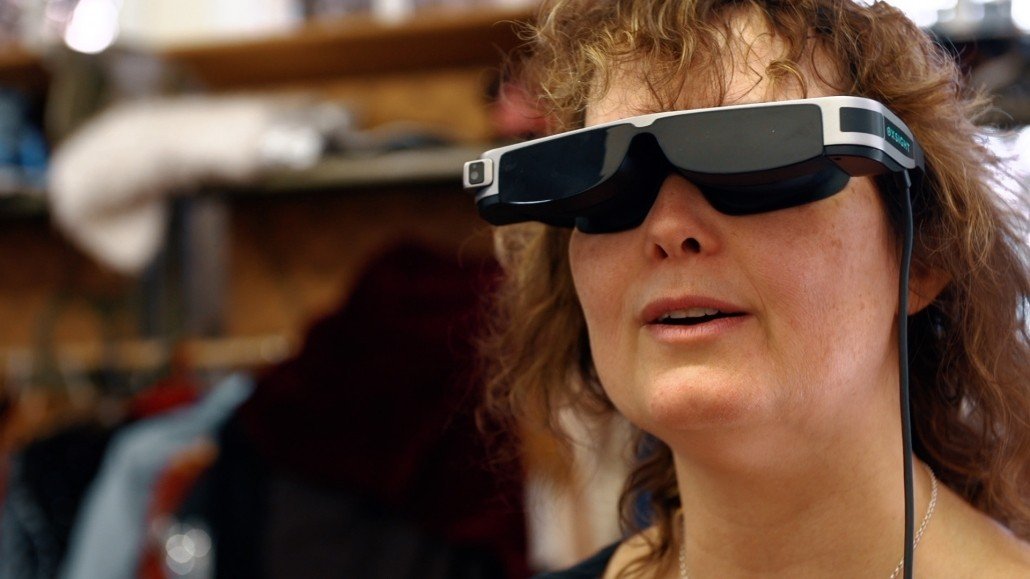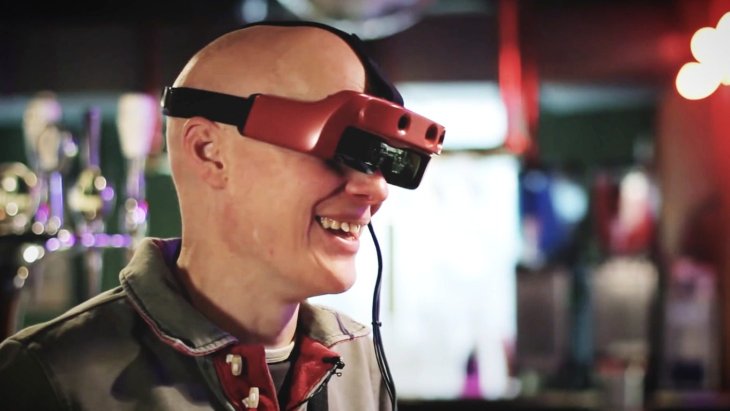These AR Glasses Can Make the Visually Impaired See Again
Viswamitra Jayavant - Sep 10, 2019

They found that with a pair of AR glasses, they can greatly increase the mobility of a patient by up to 50%, and increase grasp efficiency by up to 70%.
- This AR App Can Paste An Object From The Real World To Your Computer Screen
- Apple Is Making A Special Steve Job AR Glasses, Or Is It Just A Rumor?
- People Are Crazy About This New Feature That Lets You Create 3D Animals In Your House
To prove just how far technology has progressed, researchers have revealed that AR glasses are capable of improving eyesight for people with visual impairments. These devices improve function and mobility for those who have troubles with their peripheral vision, or those who can't see in low light.

The chief target of the project are patients who suffer from retinitis pigmentosa. It is a type of genetic disorder that causes gradual vision loss and can affect drastically the daily life of those who have it.
The AR glasses belongs to a project spearheaded by a team of researchers from the University of Southern California (USC). They found that by using a pair of AR glasses, they can greatly increase the mobility of a patient by up to 50%, and increase grasp efficiency by up to 70%.
Assistive Technology
Mark Humayun, a professor of Ophthalmology from Keck School realized that the usage of virtual reality (VR) for the treatment of eye problems is too limited to be a long-term solution. VR is often too difficult for the patient to use, or it requires too complicated and time-consuming training course for it to be effective.
His solution to this problem?
Assistive technology.
Instead of replacing the human senses, he wanted to enhance the natural senses so that it would be able to operate far more efficiently. The AR glasses’ operates by projecting bright colours directly onto the patient’s retina, corresponding to different objects in the surrounding environment.
To test the result, patients with retinitis pigmentosa were given a pair of adapted AR glasses and told to navigate their way through an obstacle course. The result was splendid, they found that with the aid of the AR glasses, the patients logged 50% fewer collisions than without.

Another test was introduced, this time, the patient was asked to grasp a wooden peg suspended on a dark background. At the front of the background were four other wooden pegs. The task was to grab onto the singular peg in the back without touching any of the pegs in front. Grasp performance was realized to be some 70% higher with the glasses - a drastic improvement.
The core symptoms of retinitis pigmentosa are lowered peripheral vision, as well as degraded night vision. Ultimately, all of the symptoms would make it difficult for people to identify and grasp objects, especially in low light conditions.
For a long time, patients have had to rely on aids to navigation, as reported by Anastasios N. Angelopoulos - the leading researcher of the project, when they have to navigate or work in dark environments.
Not anymore, apparently.
Mode of Operation
The AR glasses work by overlaying upon objects in the patient’s field of view within a six-foot wireframe with four vivids, and quite distinct colors. By following the visual cues of the overlays, the glasses managed to help patients interpret complex environments and allow them to navigate far better in the dark.
In order to accomplish this, the researchers use a process called simultaneous location and mapping. Technically, it allows the glasses to create a 3D render of the environment in real-time.
Of course, as with any sorts of exciting new tech, at the moment the glasses is still costly and technically difficult to build. But in the future, as said by the researchers, the glasses could extend a much-needed helping hands for patients who suffer from the disorder. These devices also allow them to feel far more confident in doing basic tasks and giving them a chance to lead an independent life.
Featured Stories

Features - Jan 29, 2026
Permanently Deleting Your Instagram Account: A Complete Step-by-Step Tutorial

Features - Jul 01, 2025
What Are The Fastest Passenger Vehicles Ever Created?

Features - Jun 25, 2025
Japan Hydrogen Breakthrough: Scientists Crack the Clean Energy Code with...

ICT News - Jun 25, 2025
AI Intimidation Tactics: CEOs Turn Flawed Technology Into Employee Fear Machine

Review - Jun 25, 2025
Windows 11 Problems: Is Microsoft's "Best" OS Actually Getting Worse?

Features - Jun 22, 2025
Telegram Founder Pavel Durov Plans to Split $14 Billion Fortune Among 106 Children

ICT News - Jun 22, 2025
Neuralink Telepathy Chip Enables Quadriplegic Rob Greiner to Control Games with...

Features - Jun 21, 2025
This Over $100 Bottle Has Nothing But Fresh Air Inside

Features - Jun 18, 2025
Best Mobile VPN Apps for Gaming 2025: Complete Guide

Features - Jun 18, 2025
A Math Formula Tells Us How Long Everything Will Live
Read more

Gadgets- Feb 24, 2026
3 Budget Monitors That Reduce Eye Strain and Improve Productivity
Investing in one of these monitors can help alleviate eye discomfort and boost your efficiency. Consider your desk space and usage needs when selecting the right one.

Gadgets- Feb 25, 2026
Top 4 Budget Rechargeable Wireless Mice
These mice prove that you do not need to spend a fortune for quality and convenience. Whether you prioritize productivity or gaming, there is an option here to enhance your setup.

ICT News- Feb 23, 2026
It's Over for Xbox: Asha Sharma Takes Over to Ruin Microsoft Gaming with AI
It's not just a leadership change; it's the death knell for Xbox.
Comments
Sort by Newest | Popular